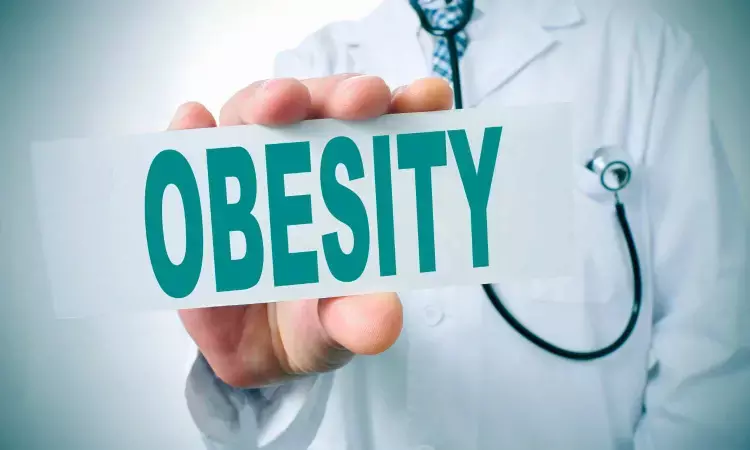- Home
- Medical news & Guidelines
- Anesthesiology
- Cardiology and CTVS
- Critical Care
- Dentistry
- Dermatology
- Diabetes and Endocrinology
- ENT
- Gastroenterology
- Medicine
- Nephrology
- Neurology
- Obstretics-Gynaecology
- Oncology
- Ophthalmology
- Orthopaedics
- Pediatrics-Neonatology
- Psychiatry
- Pulmonology
- Radiology
- Surgery
- Urology
- Laboratory Medicine
- Diet
- Nursing
- Paramedical
- Physiotherapy
- Health news
- Fact Check
- Bone Health Fact Check
- Brain Health Fact Check
- Cancer Related Fact Check
- Child Care Fact Check
- Dental and oral health fact check
- Diabetes and metabolic health fact check
- Diet and Nutrition Fact Check
- Eye and ENT Care Fact Check
- Fitness fact check
- Gut health fact check
- Heart health fact check
- Kidney health fact check
- Medical education fact check
- Men's health fact check
- Respiratory fact check
- Skin and hair care fact check
- Vaccine and Immunization fact check
- Women's health fact check
- AYUSH
- State News
- Andaman and Nicobar Islands
- Andhra Pradesh
- Arunachal Pradesh
- Assam
- Bihar
- Chandigarh
- Chattisgarh
- Dadra and Nagar Haveli
- Daman and Diu
- Delhi
- Goa
- Gujarat
- Haryana
- Himachal Pradesh
- Jammu & Kashmir
- Jharkhand
- Karnataka
- Kerala
- Ladakh
- Lakshadweep
- Madhya Pradesh
- Maharashtra
- Manipur
- Meghalaya
- Mizoram
- Nagaland
- Odisha
- Puducherry
- Punjab
- Rajasthan
- Sikkim
- Tamil Nadu
- Telangana
- Tripura
- Uttar Pradesh
- Uttrakhand
- West Bengal
- Medical Education
- Industry
Fructose has central role in driving obesity, confirms study

USA: Experts have put forward several theories behind the cause of obesity. New research published in the research journal Obesity suggests these theories are not incompatible with each other, and that they can all be brought together in one unified pathway that centres around one true driver: fructose.
Nutrition experts have recognized for many years that Western diets rich in fats and sugar may be behind the cause of obesity, but the debate has reigned over the primary culprit - intake of too many calories? Specific foods such as carbohydrates or fat? This has led to some groups recommending reducing sugar, some reducing carb intake, while others believe the key is reducing high-fat foods.
According to Richard Johnson, MD, University of Colorado Anschutz Medical Campus researcher, and his colleagues, the primary problem in obesity is fructose, which is present in table sugar and high fructose corn syrup. Fructose can also be made in the body from carbohydrates (particularly glucose). When fructose is metabolized, it lowers the active energy in the body (known as ATP, or adenosine triphosphate) which causes hunger and food intake.
What Johnson calls the “fructose survival hypothesis” brings together most of the dietary hypotheses of obesity, including the two that have been most incompatible with each other– the energy balance theory, which proposes too much food (and primarily fat) drives obesity, and the carbohydrate-insulin model, which puts carbohydrates at the center of weight gain.
“Essentially, these theories, which put a litany of metabolic and dietary drivers at the centre of the obesity epidemic, are all pieces of a puzzle unified by one last piece: fructose,” says Johnson. “Fructose is what triggers our metabolism to go into low power mode and lose our control of appetite, but fatty foods become the major source of calories that drive weight gain.”
To unify these theories, in particular, Johnson says we can look to hibernating animals as an example. When we’re hungry and low on active energy, we go into survival mode. Animals know to forage for food when energy levels begin to fall; why bears eat fruit to prepare for winter. Fruits are high-fructose foods, and fructose significantly stifles active energy. Fat acts as stored energy, but eating high-fructose foods blocks the replacement of active energy from fat storage, keeping active energy low like a bear preparing for a long winter’s nap.
“This theory views obesity as a low-energy state,” says Johnson. “Identifying fructose as the conduit that redirects active energy replacement to fat storage shows that fructose is what drives energy imbalance, which unites theories.”
While more work is needed to fully validate this unifying hypothesis, this is a hopeful first step in potentially identifying more targeted preventions for obesity and related metabolic imbalance management.
Reference:
Richard J. Johnson, Laura G. Sánchez-Lozada, Miguel A. Lanaspa, The fructose survival hypothesis as a mechanism for unifying the various obesity hypotheses, https://doi.org/10.1002/oby.23920.
Dr Kamal Kant Kohli-MBBS, DTCD- a chest specialist with more than 30 years of practice and a flair for writing clinical articles, Dr Kamal Kant Kohli joined Medical Dialogues as a Chief Editor of Medical News. Besides writing articles, as an editor, he proofreads and verifies all the medical content published on Medical Dialogues including those coming from journals, studies,medical conferences,guidelines etc. Email: drkohli@medicaldialogues.in. Contact no. 011-43720751


